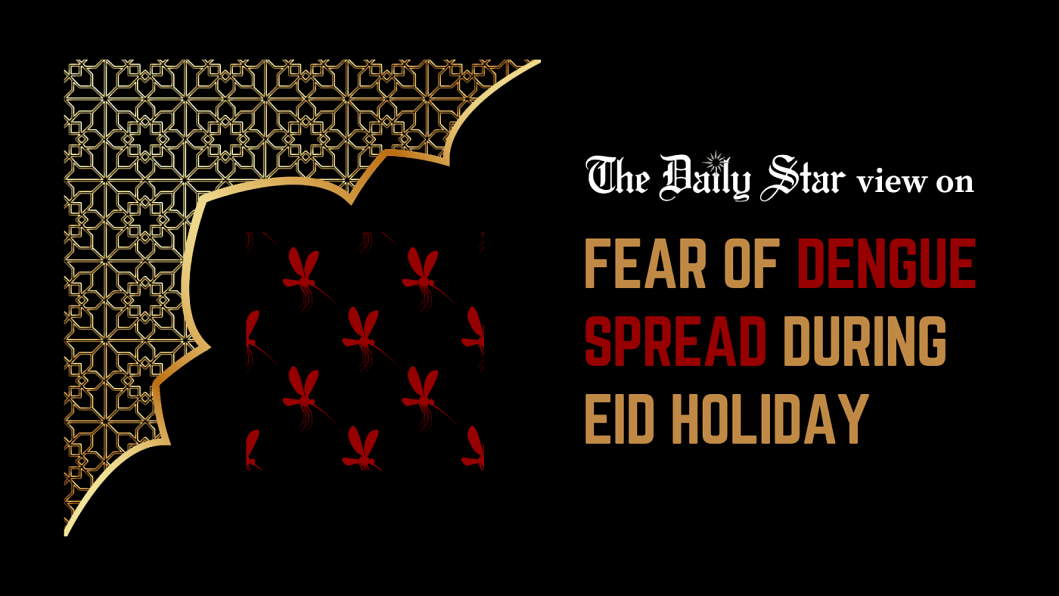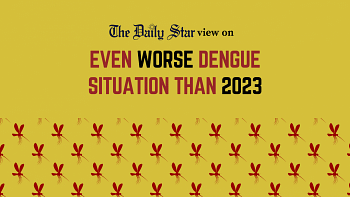Eid and dengue can be a dangerous mix

After 2023, which saw the worst dengue outbreak in Bangladesh since the first recorded epidemic in 2000, experts have been warning that 2024 could be even worse, largely due to rising infections outside Dhaka. Last year, the Directorate General of Health Services (DGHS) reported 1,705 deaths as well as 321,179 hospitalisations. This year, as of April 4, some 1,740 patients were hospitalised, even though we are still some distance away from the regular dengue season. With the country entering an extended Eid holiday, when tens of thousands of people leave Dhaka, experts predict a spike in the breeding of Aedes mosquitoes. Empty houses and public spaces are ideal breeding grounds as stagnant water, caused by intermittent rains, can accumulate with no one to clear it.
This is but one reason for the predicted increase in infections, however. As an entomologist told The Daily Star, Aedes larvae have been found "in high densities" outside Dhaka. Moreover, in many areas outside Dhaka, dengue cases are being recorded for the first time this year, which will be reflected in year-end numbers. Reports from several divisional headquarters also indicate delayed or lacklustre early response, which is vital to control outbreaks. Another issue is the lack of initiatives outside Dhaka to identify the location of patients or destroy breeding grounds. Lack of awareness also hugely influences the trajectory of an epidemic, with a survey in Chattogram finding that around 50 percent of patients did not know that stagnant water helps spread dengue while around 40 percent did not use mosquito nets.
Against this backdrop, so many people leaving for their villages can mean trouble as far as the spread of dengue is concerned. Those leaving cities and those staying back both need to be careful. Wherever they are, it is important that they take appropriate steps to ensure that water does not accumulate and to clean their houses regularly. Vehicles that people will take to go to various districts must also be sprayed with insecticide before travel. The city corporations should carry out such spraying at all bus terminals and across neighbourhoods. Along with the DGHS, they should also ramp up their anti-mosquito and surveillance initiatives.


 For all latest news, follow The Daily Star's Google News channel.
For all latest news, follow The Daily Star's Google News channel. 









Comments